DO IT YOURSELF BANKRUPTCY?
Chapter 7 Bankruptcy: Not A Do-It-Yourself Opportunity
Nobody wants to file for bankruptcy. But sometimes, after reviewing your circumstances, it may be the best choice if you wish to move forward with your dire financial situation. The problem is filing for bankruptcy can be expensive (even without an attorney), and people already overwhelmed with debt will seek low-cost ways to obtain bankruptcy relief.
There are options. Document preparation companies, bankruptcy software programs, and even forms you can download from the court web site and fill out yourself, are all ways you can handle your own bankruptcy petition without an attorney. However, while this may save you costs in the short term and get your petition filed quicker, the consequences of these cost-cutting measures may be substantial, stressful, and time-consuming. Hiring an attorney is the best way to ensure a bankruptcy filing proceeds with as few bumps as possible.
Bankruptcy Attorneys: Guides and Advocates
A Chapter 7 bankruptcy, also known as a straight bankruptcy, is often targeted to do-it-yourself types because it is perceived as an easier process. Chapter 13 bankruptcies, which involve more paperwork, hearings, and steps, are not as vulnerable to the self-drafted legal document craze. However, a legal process with fewer forms that is usually only open for 90 days is often considered an easy venture one can complete without an attorney.
The fact is no bankruptcy is simple. Bankruptcy law is controlled by a thick stack of federal statues, and each state handles bankruptcy differently. Unless you have no job, no social life, and a desire to read statutes and make a best guess as to how to fill out your forms, it is unlikely that you will complete a petition correctly; this will only lead to delays at best or lost property at worst. How does a bankruptcy attorney help you? Here are the advantages.
Time
Anywhere from eight to 12 hours a day is likely devoted to your day job, including breaks and commuting. In addition to that, you likely have friends and/or family, hobbies, household maintenance, and other duties and activities. Where are you going to set aside time to learn bankruptcy law on your own?
Besides finding a way to take a bankruptcy law crash course, you also need to set aside time for returning calls from the court or modifying your filing — especially since you are likely to make mistakes. Calls from creditors are also likely if you decide to keep a car or home that is still securing a loan. Even if your petition is filed, your bankruptcy case will require maintenance most days.
Even if you are unemployed, all of this takes away time from job searching, which helps ensure future income. Attorneys devote themselves to bankruptcy cases. They practice it every day, receive updates in the law, and know it better than you can with self-taught efforts. It is also your attorney’s job to take the telephone calls and review court notices.
While your attorney handles these matters, you go along with your life. Your only job is to provide information, sign your paperwork, and provide more information if your attorney needs it.
Knowledge
There are no cute little mistakes in bankruptcy. Even small errors can delay proceedings or even lead to your property being liquidated. Having a skilled legal professional on your side means there is less chance of mistakes that could lead to inconvenience or disaster.
Take exemptions as one example. When you file for bankruptcy, your property becomes part of the bankruptcy estate, which is managed by a trustee. Depending on the worth of certain assets, the trustee has the discretion to liquidate your property in order to provide funds to your creditors.
However, bankruptcy was not created to impoverish you. It was developed to help overburdened debtors make a fresh start. Part of that is being able to keep essential property like homes, cars, clothing, furnishings, and other parts of everyday existence.
Exemptions indicate the amount of property you can own. For example, the federal homestead exemption is $20,000. If you own a house worth $150,000 but owe a mortgage of $140,000, you have $10,000 in equity. This is an easy issue to resolve, as the homestead exemption is enough to cover your equity and keep your home from being liquidated for bankruptcy purposes.
However, if that same home worth $150,000 has a $120,000 mortgage on it, you now have $30,000 in equity, of which $10,000 is unprotected. A layperson or a document preparation company will stop there and leave that $10,000 vulnerable to liquidation. The trustee can then sell the home, give you $20,000 as your portion of the exempt equity, and then give the remaining proceeds to creditors.
Hiring an attorney avoids this problem. With a greater understanding of exemptions, your attorney can communicate your options and help you best protect that excess equity.
Exemptions are not just a data entry exercise — they can get complicated. Some property can have multiple exemptions attached. Other types of property have limited exemptions; to make this matter even more complicated, some states give you a choice between state or federal property exemptions.
An attorney licensed in your jurisdiction knows the options better than any document preparer or layperson. They can assess which one works best to your advantage and explain to you what could work best, allowing you to make an informed decision.
Attorneys know tricks of the trade too. Sometimes, exemptions also include a “wild card” exemption (catch-all) that can be stacked to your home in order to protect that excess equity. Attorneys may know this but a document preparer is often unaware and has to apply exemptions literally anyway. That means there is no room for judgment, only rote data entry that can prove to be to your disadvantage later, when it’s too late.
You may save money with a document preparer or by doing your petition yourself, but that decision could also mean losing your home or other valued property. Having an attorney means these exemptions are not only applied correctly, but also effectively.
Guidance
If you go about this on your own, and have a question, you have few options other than to go to Google and hope you find a reliable source. Google will not always be there to rescue you through your bankruptcy. Part of this process is a 341(a) hearing, and the trustee may ask a question you fail to understand. In that situation, you risk being stuck with no advocate to guide you — because, no, there is no such thing as a “Google break” during court hearings.
An attorney is there to answer questions, make court inquiries if necessary, and represent you at your 341(a) hearing, which adds reassurance. Attorneys are also available if creditors violate the automatic stay by resuming contact or even attempting to garnish you. Dealing with these oversights takes time away from work or family. Attorneys can fix these issues with one telephone call, and if necessary, a letter and a lawsuit.
When you have an attorney, you know what it is going on and do not find yourself in the position of making flustered uninformed decisions. You can work, take care of your family, and go about life calmly knowing what is going on with your bankruptcy.
Help In Case Of Litigation
During your bankruptcy, creditors are allowed to dispute the dischargeability of the debt you owe them. They stop the amount from being discharged by filing an adversary proceeding, which is a lawsuit that arises from within a bankruptcy case.
Adversary proceedings are rare in Chapter 7 consumer cases. Unless you charged up $5,000 or more within the last 90 days before filing bankruptcy, most companies are willing to write off the discharge and move on. When they do occur, it can be a frightening experience for people. Having an attorney already retained means you have representation in case this happens.
The only disadvantage is that the cost of this defense is additional to the attorney fees already paid for your bankruptcy. It may be more prudent to settle the matter or even let it go to default, as owing only one debt is still an advantage from your previous situation. All of this can be discussed with your attorney, again, allowing you to get the information you need for an informed decision.
But What About The Fees?
The cost is the biggest barrier to hiring a bankruptcy attorney. Since the 2005 bankruptcy law made it easier to hold attorneys liable for clients’ misrepresentations during a bankruptcy proceeding, the fees increased to cover that additional risk. A simple bankruptcy may cost $1,500 to $2,000 and increase from there if you have non-exempt assets, a high risk of an adversary proceeding, or secured debts on items you wish to keep (like cars).
Considering the potential problems that could arise without legal help, it is likely better to consider ways to find money for these fees without attracting unwanted attention to your petition. Follow these five tips when figuring out how to pay your attorney:
DO NOT use a credit card to pay bankruptcy attorney fees
Excessive charges on a card right before you file can lead to an adversary proceeding later. Many attorneys often refuse to accept credit cards for payment, unless it belongs to a friend or relative. Some jurisdictions even take attorneys to task for allowing clients to pay their fees with a credit card, only for the debt to be discharged. Malpractice challenges often arise against bankruptcy attorneys due to proceedings related to clients using their credit cards to pay fees.
This rule also applies to lines of credit, second mortgages, or any other way of financing that increases your debt load. Even loans from friends or family can lead to trouble in this case, as all debts, even private ones, must be listed on your petition. Bottom line: Do not borrow to pay attorney fees.
Also, DO NOT sell high-value property to pay your attorney fees
Property transfers made right before your bankruptcy filing are highly scrutinized. If you sold a non-exempt asset for $2,000 and then used that money to pay your attorney, the trustee will likely ask for that money to be paid back in the estate — and out of your or your attorney’s pocket. Before you sell anything to pay for attorney fees, get information on exemptions first, as selling exempt property may be less scrutinized.
Find an attorney who allows payments
Some attorneys are willing to take part of their fee before filing and have you pay the balance after the case is done. There are not many who will make this allowance, so this search may take a while. If you go through a pro bono or modest means program with your local or state bar association, you may find an attorney who works for a reduced rate.
Arrange for a friend or family member to pay the fee
If you have someone in your life willing to help you with this, arrange to have them pay your attorney. Your petition will report that someone else paid your fee, but this situation is so common that few trustees give it much thought.
Asking several friends or family members to help may also be a good way to secure funds for attorney fees. Just be honest if your attorney or trustee asks where you got the money, because again, this is also a common situation. This money will need to be considered a gift, not a loan, so you will not add debt and attract unwanted attention.
Save your money
If you know you are going to file bankruptcy, stop paying on your unsecured debt like credit cards and lines of credit. Pay mortgage and car payments if you are keeping those assets. By not making large credit card payments every month, you may have enough for a bankruptcy attorney fee in no time.
Paying a bankruptcy attorney falls into the category of “where there is a will, there is a way.” It is never fun to ask for monetary gifts, sell items or receive relentless telephone calls once you stop paying on credit cards. But if this helps you get to a place of financial peace, the hardship will likely be worth it.
Preparing For Your Consultation
When you call a bankruptcy attorney, the office will schedule a consultation that is normally free. Before you attend, gather statements for all your debts, your latest tax returns, and three months of paycheck stubs that show income. Your attorney will likely also send you a packet of intake forms and lists of documents required to file bankruptcy. Fill out forms completely and start collecting requested items immediately.
If you think you are going to be nervous, write down any questions before the meeting. Bring any correspondence, collection lawsuits or other papers that seem unsettling. It is often better to bring too much than too little, so if something you received generates a question, bring it to your consultation.
Finally, prepare to be fully honest with your attorney. If you charged $2,500 last month for a medical bill, tell the attorney. The same is true if you have a land holding in Arizona or beachfront property in Hawaii. You will likely lose assets like these in the bankruptcy, but fraud can lead to punishment for not only you, but also your attorney.
Final Word
It is understandable that people may be unwilling to hire a bankruptcy attorney. The cost is often high and money is already hard to come by if you are considering bankruptcy.
Hiring an attorney gives clarity to this procedure. You will know better what is going on and be able to make informed decisions. Your petition will be cleaner, which will make the process smoother and your assets less likely to be liquidated. While paying an attorney fee of $1,500 – $2,000 now seems like an extravagant expense, it will most likely pay for itself in the future through protected property, saved time, and overall peace of mind.
What Our Clients Say:
Member:

Attorney Gregory Kornegay
Greg is a trial attorney in Wilmington with over 30 years of experience. Greg was born and raised in southeastern North Carolina. Before law school he managed a store with employees making a payroll every week. His first job out of law school was as an Assistant District Attorney investigating and trying cases for the State of North Carolina. Through the years he has handled many different types of cases – including death penalty cases.
Being married with children has been a blessing and a challenge, but has served him well in understanding the problems individuals and families face as they live out their lives. Greg believes that each case is different and the needs of each client are unique, but there are certain themes of life that we all share.


